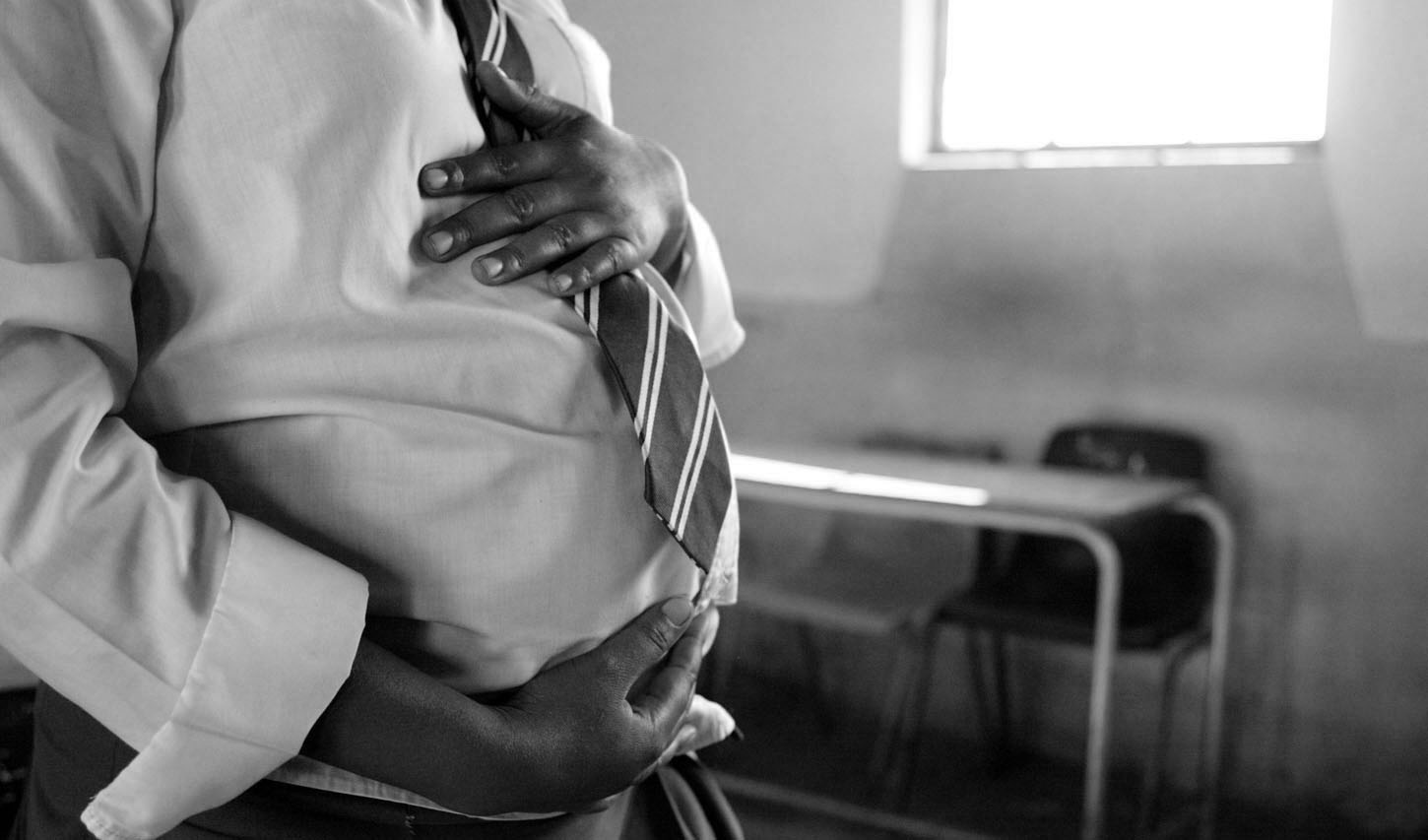‘When I got pregnant I went to the clinic to ask about getting an abortion because I was too young to have children. The nurses at the clinic told me that I shouldn’t get an abortion because it was my first child and what if I never have another child?” a pupil and teenage mother named Kgaulelo says in a video. She says she ended up having a child at a young age and faced some challenges with reintegrating at school and resuming her normal life.
“There are lots of programmes targeting young girls but what we are seeing is that a lot of young girls are having non-consensual sex and transactional sex,” the executive director at Health and Education Training and Technical Assistance Services, Barbara Michel, told the symposium on “Empowering Adolescents – Navigating Teenage Pregnancy Prevention and Support”, hosted by Well Being Africa. She stressed that boys also needed to be brought into the conversation about teenage pregnancy.
A 2022 report by Statistics South Africa found that adolescents aged 10 to 19 make up 17.4% of our population and, alarmingly, that in 2019, 106,383 teenagers gave birth. Between March 2021 to April 2022, 90,037 girls in this age group gave birth across all provinces.
Speaking to these statistics, Michel pointed out that KwaZulu-Natal had the highest number of these pregnancies (26,296), followed by Limpopo (15,365) and the Eastern Cape (15,348). Limpopo had recorded the highest number of terminations.
The problem with policies
Michel noted that in response to the teenage pregnancies the Department of Basic Education had put in place various measures such as the Prevention and Management of Learner Pregnancy policy and the Comprehensive Sexual Education policy in partnership with the Department of Health. “While the policies are well articulated, their success largely depends on implementation, which is often inconsistent across regions, provinces and individual schools,” she said, adding that the constraints included resistance from parents and community leaders, teachers not being comfortable about the topic and schools not having the required materials.
Michel suggested that young facilitators in the teenagers’ peer groups, developing mobile apps and social media campaigns using culturally appropriate materials, as well as community involvement that goes beyond merely promoting abstinence could help to tackle teenage pregnancy. It was important to have consistent messaging from family, peers, the media and religious institutions.
“We need to get parents to talk about sex from when children are babies so that they can anticipate the discussions that will be needed during puberty, making children feel more empowered.”
To be able to win their hearts you have to give them a platform to tell you what they think about sex.
Nqubeko Shezi from Embrace, a movement for mothers, who was a young mother herself, said the Maputo Protocol provided a progressive basis from a legal perspective for ensuring the rights of women and girls to life, integrity and security of the person and should be integrated into the South African legal system since the country is a signatory. She noted, however, that there are often challenges with implementing the protocol on the ground.
The protocol also urges countries to take measures to “establish and strengthen existing pre-natal, delivery and post-natal health and nutritional services for women during pregnancy and while they are breastfeeding”, explained Shezi. Constitutionally speaking, she said, pupils’ rights to access to education, gender equality, comprehensive pregnancy prevention and comprehensive sexuality education are guaranteed. But she lamented the practical application of this, saying pupils often faced stigmatisation, discrimination and teachers not being fully supportive of them needing to breastfeed or express milk.
“We are not saying teens must go get pregnant, we are saying how do we manage those who already are?”
Referring to the abuse often faced by young girls, she said: “Most people think teenage pregnancies happen because of irresponsibility of teenagers. Pregnancies often occur inside their households, rape, in schools, teachers impregnate young girls in schools. So, when we actually offer support it is very important that the facilities in place to support young mothers are aware of the underlying cause of the pregnancies.”
Highlighting the legal implications of teenage pregnancies, Shezi told attendees that “when teenagers go to clinics for antenatal visits the nurses shy away from asking if it was consensual. There should be a standard form in the facilities asking whether it was consensual so they can take up a case where necessary.”
Shadrack Maduma from the Rooiwal Child Aid and Youth Centre, told the gathering: “Peer pressure, poverty, alcohol and drugs and communication play a role in teen pregnancy.” He added that drugs and alcohol make children susceptible to compromised decision-making and that sometimes poverty results in young girls entering transactional relationships to make money to take back to their families.
“I would emphasise communication because if you don’t communicate with your child they will take the words outside. When you talk to your child about sex you’re not sending them, you are preparing them…
“To be able to win their hearts you have to give them a platform to tell you what they think about sex… when they ask you questions you have to be as honest as possible otherwise they get the answers somewhere else.” DM





